Keynote Speakers of MICAD 2025
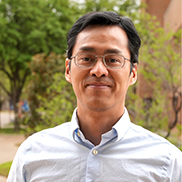
Prof. Junzhou Huang
The University of Texas at Arlington, United States
FAIMBE
Jenkins Garrett Professor
Dr. Junzhou Huang is the Jenkins Garrett Professor in the Computer Science and Engineering department at the University of Texas at Arlington. His major research interests include machine learning, computer vision, medical image analysis and bioinformatics. His research has been recognized by several awards including the NSF CAREER Award, Google TensorFlow Model Garden Award, Microsoft Accelerate Foundation Models Research Award, four Best Paper Awards (MICCAI'10, FIMH'11, STMI'12 and MICCAI'15) as well as two Best Paper Nominations (MICCAI'11 and MICCAI'14). His research projects are supported by both federal/state agencies (NSF, NIH, CPRIT) and industry (Google, Amazon, Microsoft, IBM, Samsung, XtaiPi, Nokia and Johnson & Johnson). He enjoys to develop efficient algorithms with nice theoretical guarantees to solve practical problems involved large scale data.
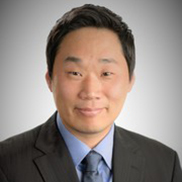
Prof. Jinman Kim
The University of Sydney, Australia
Director of the Biomedical Data Analysis and Visualisation (BDAV) Lab
Research Director of the Telehealth and Technology Centre, Nepean Hospital
Professor Jinman Kim is a Professor of computer science at the University of Sydney. He established and leads the Biomedical Data Analysis and Visualisation (BDAV) Lab at the School of Computer Science. He is the Imaging Theme Leader of the ARC Training Centre in Innovative Biomedical Engineering on musculoskeletal technologies. He is the also the Director of the Telehealth and Technology Center, Nepean hospital. Prof Kim co-leads the ‘digital health imaging’, as part of the Faculty of Engineering’s Digital Science Initiative, with the vision and strategy to improve the use and accessibility of medical imaging via AI innovations.
Prof Kim received his PhD degrees in computer science from the University of Sydney in 2006. He received the APD Research Fellowship from the ARC in 2008. In 2010, he joined the University of Geneva as an Experienced Researcher (Marie Curie). He then worked as a Senior Lecturer (2013), A/Prof (2016), and Prof (2022) at the University of Sydney.
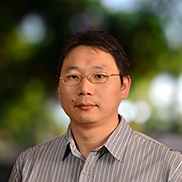
Prof. Gang Li
University of North Carolina at Chapel Hill, United States
Principal Investigator
UNC BRAIN Lab
Dr. Gang Li is a Full Professor in the Department of Radiology at the University of North Carolina at Chapel Hill. He received his PhD in 2010 from Northwestern Polytechnical University. He was a Research Fellow at The Methodist Hospital Research Institute, Weill Medical College of Cornell University and Harvard Medical School. He is the recipient of the UNC Junior Faculty Development Award, NIH K01 Career Award, and the Distinguished Investigator Award of the Academy for Radiology & Biomedical Imaging Research.
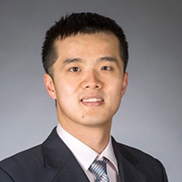
Prof. Yiyu Shi
University of Notre Dame, United States
Dr. Yiyu Shi is currently a professor in the Department of Computer Science and Engineering at the University of Notre Dame, the site director of National Science Foundation I/UCRC Alternative and Sustainable Intelligent Computing, and the director of the Sustainable Computing Lab (SCL). He is also a visiting scientist at Boston Children’s Hospital, the primary pediatric program of Harvard Medical School. He received his B.S. in Electronic Engineering from Tsinghua University, Beijing, China in 2005, the M.S and Ph.D. degree in Electrical Engineering from the University of California, Los Angeles in 2007 and 2009 respectively. His current research interests focus on hardware intelligence and biomedical applications. In recognition of his research, more than a dozen of his papers have been nominated for or awarded as the best paper in top journals and conferences, including the 2021 IEEE Transactions on Computer-Aided Design Donald O Pederson Best Paper Award. He is also the recipient of Facebook Research Award, IBM Invention Achievement Award, Japan Society for the Promotion of Science (JSPS) Faculty Invitation Fellowship, Humboldt Research Fellowship, IEEE St. Louis Section Outstanding Educator Award, Academy of Science (St. Louis) Innovation Award, Missouri S&T Faculty Excellence Award, NSF CAREER Award, IEEE Region 5 Outstanding Individual Achievement Award, the Air Force Summer Faculty Fellowship, and IEEE Computer Society Mid-Career Research Achievement Award. He has served on the technical program committee of many international conferences. He is the deputy editor-in-chief of IEEE VLSI CAS Newsletter, and an associate editor of various IEEE and ACM journals. He is an IEEE CEDA distinguished lecturer and an ACM distinguished speaker.
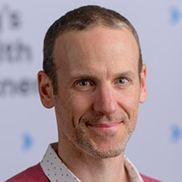
Prof. Tom Vercauteren
King's College London, UK
Tom Vercauteren is Professor of Interventional Image Computing at King’s College London since 2018. He is also co-founder and Chief Scientific Officer of Hypervision Surgical, a spin-out company focusing on intraoperative hyperspectral imaging. From 2018-2023, he held the Medtronic / Royal Academy of Engineering Research Chair in Machine Learning for Computer-assisted Neurosurgery at King’s. From 2014 to 2018, he was Associate Professor at UCL where he acted as Deputy Director for the Wellcome / EPSRC Centre for Interventional and Surgical Sciences (2017-18).
From 2004 to 2014, he worked for Mauna Kea Technologies, Paris where he led the research and development team designing image computing solutions for the company’s CE-marked and FDA-cleared optical biopsy device. His work is now used in hundreds of hospitals worldwide. He is a Columbia University and Ecole Polytechnique graduate and obtained his PhD from Inria in 2008. Tom is also an established open-source software supporter.
Tom Vercauteren's research focuses on translational medical image computing, machine learning and interventional imaging devices with a specific interest in their development for surgery and interventional sciences.